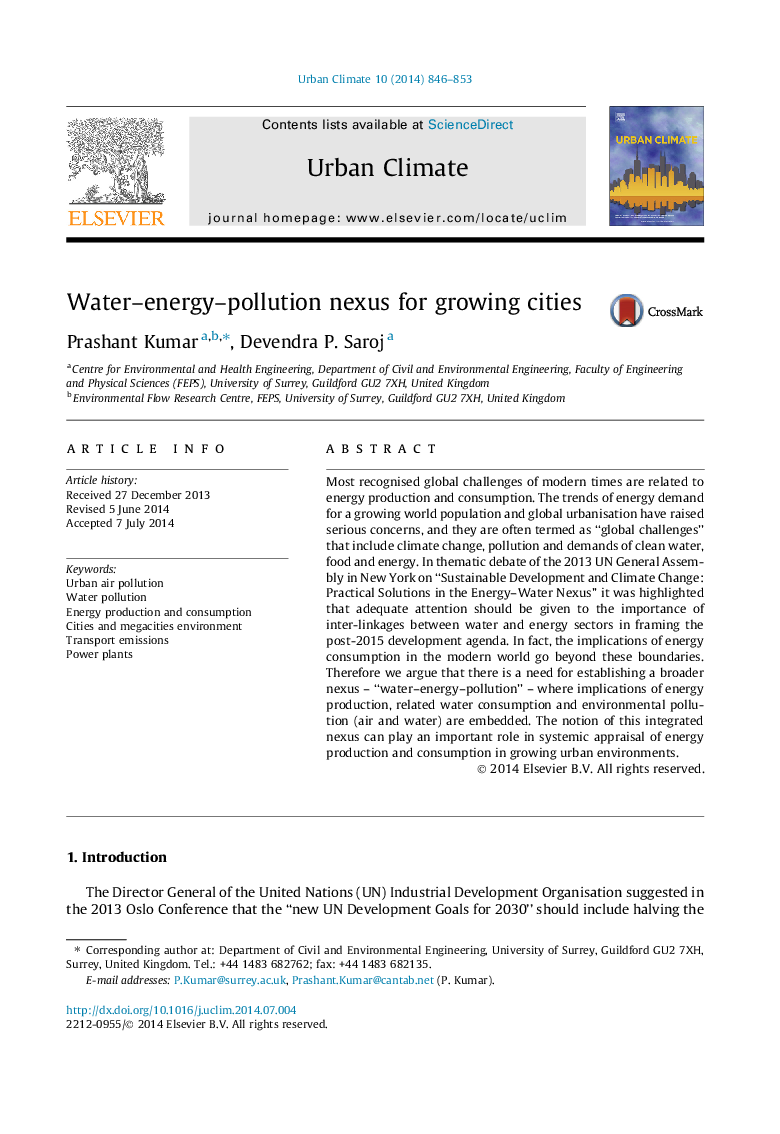| Article ID | Journal | Published Year | Pages | File Type |
|---|---|---|---|---|
| 143705 | Urban Climate | 2014 | 8 Pages |
•Urban challenges are often addressed within disciplinary boundaries.•A multi-dimensional water–energy–pollution nexus is discussed.•Usefulness of this nexus for growing cities is demonstrated through a case study.•Energy demand for water replenishment is negligible compared with resulting benefits.•Fuel (energy) savings by road transportation carve down health emissions notably.
Most recognised global challenges of modern times are related to energy production and consumption. The trends of energy demand for a growing world population and global urbanisation have raised serious concerns, and they are often termed as “global challenges” that include climate change, pollution and demands of clean water, food and energy. In thematic debate of the 2013 UN General Assembly in New York on “Sustainable Development and Climate Change: Practical Solutions in the Energy–Water Nexus” it was highlighted that adequate attention should be given to the importance of inter-linkages between water and energy sectors in framing the post-2015 development agenda. In fact, the implications of energy consumption in the modern world go beyond these boundaries. Therefore we argue that there is a need for establishing a broader nexus – “water–energy–pollution” – where implications of energy production, related water consumption and environmental pollution (air and water) are embedded. The notion of this integrated nexus can play an important role in systemic appraisal of energy production and consumption in growing urban environments.
